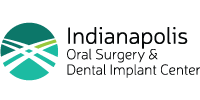What Care Do I Need To Take Post Tooth Extraction
“What Care Do I Need To Take Post Tooth Extraction?” is one of the many questions that are asked by dental patients in Indianapolis who’ve had their tooth extracted at Indianapolis Oral Surgery & Dental Implant Center. After You’ve Had a Tooth Pulled, your oral surgeon Dr. Falender will send you home to recover. Recovery typically takes a few days.
Following all the post-operative instructions after tooth extraction reduces the incidence of infection and chances of dry socket. If aftercare instructions are not followed then it can cause complications, which can further lead to delayed healing.
Here are some of the do’s and don’ts after a tooth extraction.
DOs
1. Take Your Medicines as Prescribed by Your Oral Surgeon
Don’t skip the medicines. If antibiotics are given they should be taken regularly. Pain killers and anti-inflammatory drugs are to be taken after tooth extraction. It help in reducing the pain and swelling. If the pain continues even after two days of tooth extraction and bleeding starts then you should call your dentist.
2. Use Ice Packs
Apply an ice bag to the affected area immediately after the procedure to keep down swelling. While on simple extractions swelling isn’t accompanied, in cases requiring severe cheek retractions swelling can occur after operation. The swelling after an extraction may not occur immediately, but can continue to swell for a few days, reaching a maximum at the 2nd or 3rd day. Application of the ice pack is most effective during the day of extraction as after 24 hours there is no significant beneficial effect. Apply ice for 10 minutes at a time.
3. Rest for a Day
Relax for at least 24 hours after the extraction. Limit activity for the next day or two.Avoid rinsing or spitting forcefully for 24 hours after the extraction to avoid dislodging the clot that forms in the socket.
After 24 hours, rinse with your mouth with a solution made of 1/2 teaspoon salt and 8 ounces of warm water.
4. Let it Clot
Let the clot be formed on the tooth extraction site, which covers it and allows it to heal. After the procedure your dentist will give you a piece of gauze to bite on near the extraction site. Try to bite down and keep it in place for at least an hour afterwards. This will put pressure over the wound and help it to stop bleeding.
However, make sure you don’t chew on gauze piece. If you can keep it in place longer that’s best, but make sure to change the gauze after roughly every half hour, depending on the amount of bleeding. If once the clot forms it becomes dislodge the nerve endings then become exposed. The nerves and capillaries spasm and constrict, limiting essential blood supply, which causes delay in healing. If the bleeding persists for a few hours after the procedure then try putting a wet tea bag on the site. The tannic acid present in black tea helps to aide in the clotting process.
5. Take Warm Saline Rinses
The main aim of rinsing is to clean the area of extraction as it is not possible to brush the socket. We mix salt to make the solution isotonic and similar to natural tissue fluid and thus it is less irritating than water. Rinsing is usually advised 12 hours after extraction. So, warm saline rinses help in cleaning and maintaining the hygiene of that area.
DONTs
1. Avoid Sucking
Do not drink from a straw for the first 24 hours. Avoid using Pacifier and Sippy-Cup. The sucking action will increase the pressure inside your mouth and may interfere with a clot forming.
2. Don’t Smoke
For at least 48 hours after tooth extraction do not smoke. The chemicals in the smoke can affect the clot and hence the chances of developing dry socket 3-4 days after tooth extraction increases and can inhibit healing.
3. Avoid Solids
While you still have numbness it’s best not to eat solids. When you start feeling your jaws you can start taking solids. After tooth extraction, take soft and liquid foods like soups, mashed potatoes, yogurts, milkshakes, smoothies etc. Gradually add solid foods to your diet as the extraction site heals.
4. Avoid Aspirin
Don’t ever take aspirin (Can take ibuprofen). Aspiring being a blood thinner will delay in clot formation thereby will prevent healing. Take the medications as prescribed by the physician and consult your dentist before taking any medicine.
5. Use Pillows
When lying down, prop your head with pillows. Lying flat may prolong bleeding.
6. Avoid Exposure of the Extracted Site
Continue to brush and floss your teeth, and brush your tongue, but be sure to avoid the extraction site. Doing so will help prevent infection.
7. Don’t Poke into the Gap Created
Though for initial few days, it will feel a bit awkward to have a gap but don’t poke that area with any toothpick or tongue as it may delay healing, may provoke bleeding and can also lead to dry socket.
About Your Indianapolis, IN Oral Surgeon
We look forward to providing families with exceptional care and advanced treatment options. To schedule an appointment with Dr. Falender contact our Indianapolis, IN, dental office today by calling (317) 790-2555. Our office welcomes patients in and around Indianapolis, IN, including Fishers, Lawrence, Greenfield, and the surrounding Southern Indianapolis communities.









